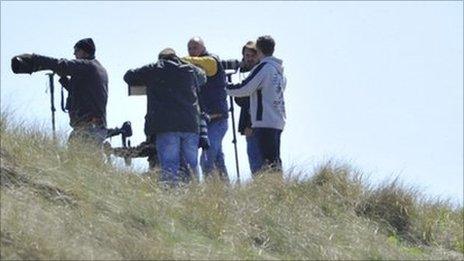Prince George 'being harassed by paparazzi'
- Published
Nicholas Witchell reports on the extreme lengths some paparazzi have gone to in order to get photographs of Prince George
Paparazzi harassment of Prince George has increased and photographers' tactics are becoming increasingly dangerous, Kensington Palace has said.
The palace has issued an appeal to world media not to publish unauthorised images, external of the two-year-old, who is third in line to the throne.
Some paparazzi had gone to "extreme lengths" to take pictures and "a line has been crossed", the palace said.
It wants to "inform discussion" on unauthorised photography of children.
The palace said a small number of media organisations, mostly in Germany, France, Australia, New Zealand and the US, had published photos of Prince George in "unacceptable circumstances".
However it said the "vast majority", and all UK publications, had refused.
'Number one target'
The palace says in recent months, photographers have:
Used long range lenses to photograph the Duchess of Cambridge playing with her son in private parks
Monitored the movements of Prince George and his nanny around London parks, as well as the movements of other household staff
Photographed the children of private individuals visiting the Duke and Duchess of Cambridge's home
Pursued cars leaving family homes
Used other children to draw Prince George into view around playgrounds
Hidden on private property in fields and woodland locations around the duke and duchess's Norfolk home
Obscured themselves in sand dunes on a rural beach to take photos of Prince George playing with his grandmother
Placed locations near the home of Catherine's parents in Berkshire under steady surveillance
It said the most recent incident, which was last week, involved a photographer who was discovered by police lying down in the boot of a rented car attempting to shoot photos outside a children's play area.

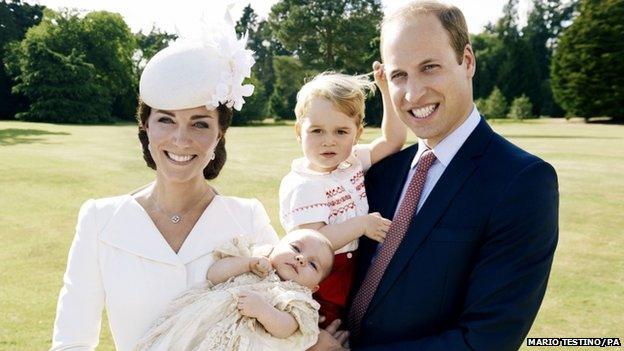
The Duke and Duchess of Cambridge have released official photographs of their family
Analysis
Nicholas Witchell, BBC royal correspondent
The palace hopes that by drawing attention to the way in which these photographs are being obtained, the readerships of these magazines will bring pressure to bear on the publishers to stop printing them.
It says it wants to instigate a "public discussion" which will help publishers of what they call "unauthorised photos of children" to understand their responsibilities better.
But is it realistic to expect the few publishers who rely of these photos to put principle before profit?
That remains to be seen.

Kensington Palace tweeted, external: "The Duke and Duchess want to extend their thanks for the kind and supportive messages they have received in recent months.
"They have been delighted to share photos of their children and will continue to do so in the months and years ahead.
"Yet undercover paparazzi continue to pursue their children, selling images of Prince George to international publications."
Celebrity photographer Steven Walters says the Royals should release more pictures to deter paparazzi
In the published letter, Kensington Palace communications secretary Jason Knauf said the prince had become the paparazzi's "number one target".
He said: "It is of course upsetting that such tactics - reminiscent as they are of past surveillance by groups intent on doing more than capturing images - are being deployed to profit from the image of a two-year-old boy.
"In a heightened security environment such tactics are a risk to all involved.
Paddy Harverson: "Prince William is absolutely adamant that his family has to be able to live as privately as possible"
"The worry is that it will not always be possible to quickly distinguish between someone taking photos and someone intending to do more immediate harm."
Mr Knauf said the duke and duchess wanted Prince George and his sister Princess Charlotte "to be free to play in public and semi-public spaces with other children without being photographed".
They want to give their children a childhood that is "free from harassment and surveillance", he said.
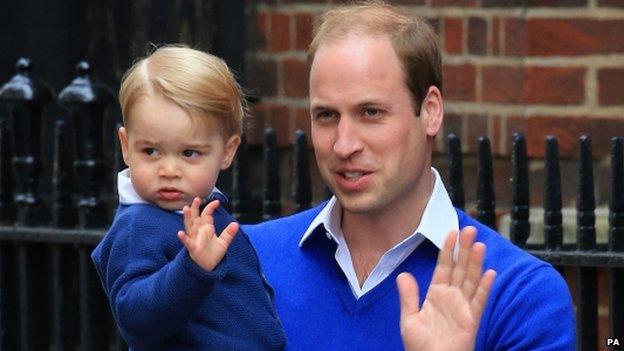
Prince George has appeared in public in recent months, such as after the birth of his sister Princess Charlotte
Paddy Harverson, former communications secretary to the Duke of Cambridge, said: "Just imagine if everywhere you went and when you took the children out to playgrounds, there were men carrying cameras, they were hiding.
"Often they don't know they're there until they see the photographs later in magazines, which are published abroad."
The Metropolitan Police said in a statement: "The covert actions of photographers have at times caused concerns during police protection operations when they have been considered a possible security threat.
"Photographers are potentially putting themselves at risk from armed intervention where our armed officers perceive a risk to the personal safety of their principal, the public and themselves."
- Published14 August 2015
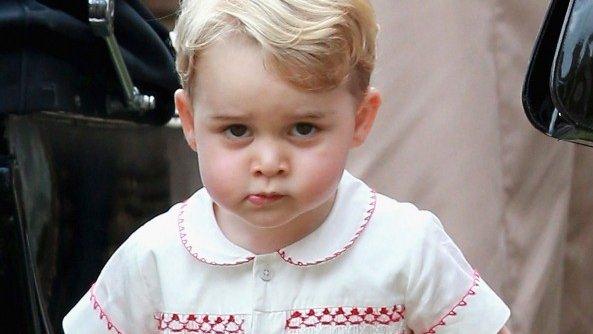
- Published21 July 2015
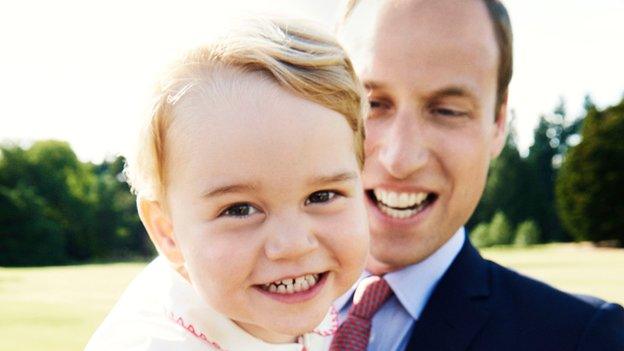
- Published14 September 2012
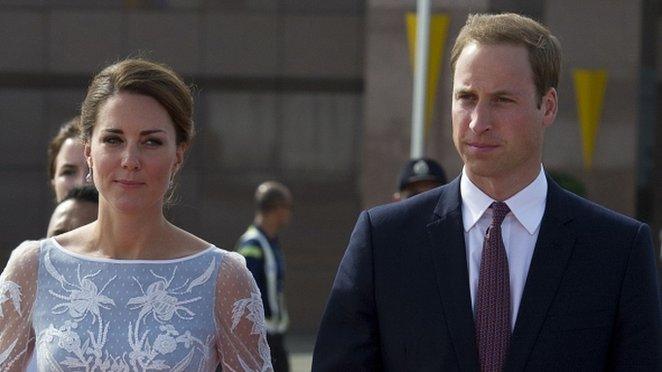
- Published11 May 2011
